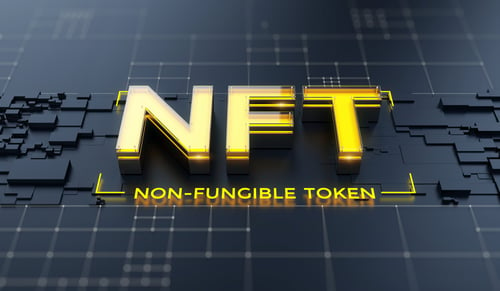NFT partnerships have been a hot-topic throughout 2021, but the NFL says no to new deals for now
We saw Italian football giants Inter Milan make a shirt sponsorship deal with an NFT distributor early this summer and now we’ve got the champions of England Manchester City launch its second NFT drop. Despite the popularity of collectibles like the NBA Top Shots, the NFL has informed teams that they cannot sell sponsorships to cryptocurrency firms.
The fast-moving cryptocurrency world means there is a certain level of pressure on sports organizations to manage teams’ decision-making with regard to sponsorships. As such, the NFL has placed a ban on the sale of non-fungible tokens (NFTs). This will give the organization time to manage the flow of digital collectibles and art.
Why Is the NFL resilient to NFT deals?
For aspiring collectors of digital trading cards and art, American sport has various outlets to satisfy the demand. The NHL has Upper Deck and the NBA has Hot Shots, both of which provide some highly sought-after digital assets. But, as we’ve seen many times, the NFL is infamously cautious with opening themselves up to new commercial deals.
The NFL represents the most valuable league in U.S. sports and must protect its image. We have seen this in the past with alcohol sponsorships, where they moved through the gears with an air of caution, before opening up to the kind of marketing we see in the NFL today.
Cryptocurrency is a confusing market for those that are looking in from the outside, especially when it comes to digital ownership of NFTs. Teams will still be able to align with companies that are a step removed from trading, but any crypto company that is associated with asset managers and the sale of coins will be blocked.
A statement from the NFL
New guidelines have been introduced, which according to team official states that “clubs are prohibited from selling, or otherwise allowing within club controlled media, advertisements for specific cryptocurrencies, initial coin offerings, other cryptocurrency sales or any other media category as it relates to blockchain, digital asset or as blockchain company, except as outlined in this policy”.
The same report stated that “companies whose primary business is providing investment advisory and or fund management services in connection with cryptocurrency, provided that such advertising sponsorship rights are limited to promoting the company's corporate brands.”
It’s clear that the new guidelines are designed to exclude certain companies and not others. The cryptocurrency industry as a whole has been viewed as a bit of a Wild West, while the big players move away from the rest of the pack. With so much new and exciting technology to harness, there is a myriad of companies vying to be the biggest player in their sector.
 Mark Weaden
Mark Weaden





